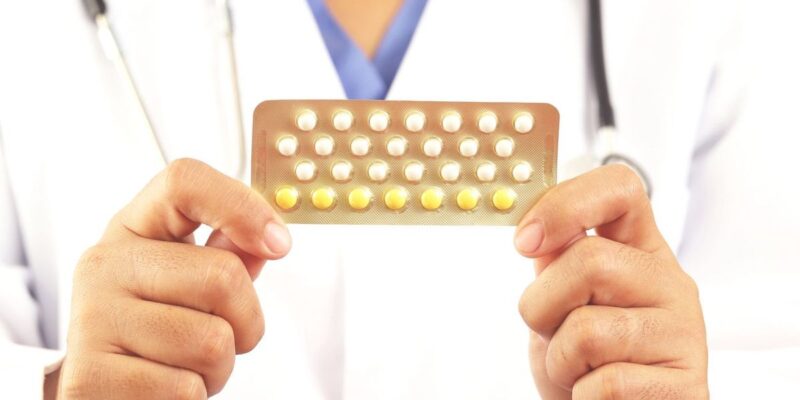Facts About Hormonal Birth Control Pills

If you’ve decided to use birth control pills for contraception or other medical reasons, your next decision is which kind.
We talked to Mary Jane Minkin, M.D., a clinical professor of obstetrics, gynecology and reproductive sciences at the Yale University School of Medicine and a member of HealthyWomen’s Women’s Health Advisory Council, about choices women have for birth control pills and how to choose the right one for your priorities and needs.
How do combination and estrogen-free hormonal birth control pills work?
There are two basic types of hormonal birth control pills, which are also called oral contraceptives. All of them include progestin, and some also include estrogen.
The hormonal birth control pills that have both estrogen and progestin are called combination pills. Progestin is a lab-made version of the naturally occurring hormone progesterone. Estrogen-free pills, which only contain progestin, are sometimes called progestin-only pills, POP or mini-pills.
Progestin is what keeps you from getting pregnant. It suppresses ovulation and makes cervical mucus — the mucus at the entrance to the uterus — thick or pasty, which makes it hard for sperm to swim. So, progestin has a dual-action role in preventing pregnancy. The addition of estrogen to the pill primarily works to regulate menstrual bleeding.
Read: Why Hormonal Birth Control Is So Important to Women’s Healthcare >>
How will my period be affected by combination birth control pills? What about estrogen-free birth control pills?
Some types of combination birth control pills are actually prescribed for the purpose of period management: they can regulate periods and reduce period pain. If you are someone who has awful periods, with cramps, excessive flow or both, you may do better on a combination pill. The impact of estrogen-free pills on your period can be more variable. Some women get no periods at all, and some get occasional bleeding.
Are there certain medical conditions or reasons why I can’t take certain types of birth control?
Yes. There are several medical conditions and reasons that you may not be able to take certain types of birth control. For example, breastfeeding women are discouraged from taking a pill that contains estrogen because it can suppress breast milk production. Once you finish breastfeeding, you can switch back to a combination pill. Also, women with migraine attacks may do better on an estrogen-free pill. Women whose healthcare providers are concerned about blood clots should avoid a pill that contains estrogen as well.
What side effects are most common with each type of pill?
Side effects are more common when you first start taking the pill, as your body adjusts to the hormones. They generally resolve after a month or two. They can include sore breasts, spotting, changes in your period, headache attacks or nausea. If your side effects are severe, talk to your doctor. You may need to switch the type of pill you’re taking.
Of course, some side effects, such as changes to your menstrual cycle, can be desirable. Some women use the pill to regulate, reduce the intensity of or even skip their periods.
What happens if I miss a pill?
If you miss a pill, take two the next day. However, many providers will suggest women using estrogen-free pills use a back-up birth control method for at least a week following the skipped dose. Missing one pill with a combination pill is not as significant.
How soon will I be protected from getting pregnant once I start taking each type of pill?
For all types, if you start the pill on the first or second day of your period, you should be protected as soon as you start taking it. If you start in the middle of your cycle, it could take longer to be effective. Ask your healthcare provider when you can start to rely on your pill for contraception.
Will taking hormonal birth pills now affect my chances of getting pregnant in the future?
Using either type of pill should not impact your ability to get pregnant later. And you don’t have to be worried about long-term use: neither type of pill will affect your fertility prospects.
I always suggest to women who are using the pill and are planning a pregnancy in the future to use this time to get into the best shape you can. Good nutrition and exercise habits are very helpful for a good pregnancy. And I recommend you get extra folic acid once you’re trying to conceive. Since you’re already in the habit of taking a daily pill, why not switch birth control for a vitamin that contains folic acid?
This educational resource was created with support from Exeltis.
From Your Site Articles
Related Articles Around the Web








